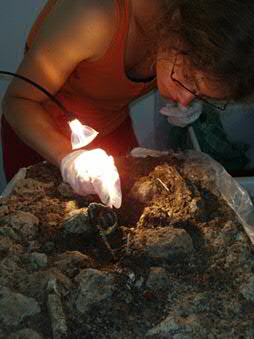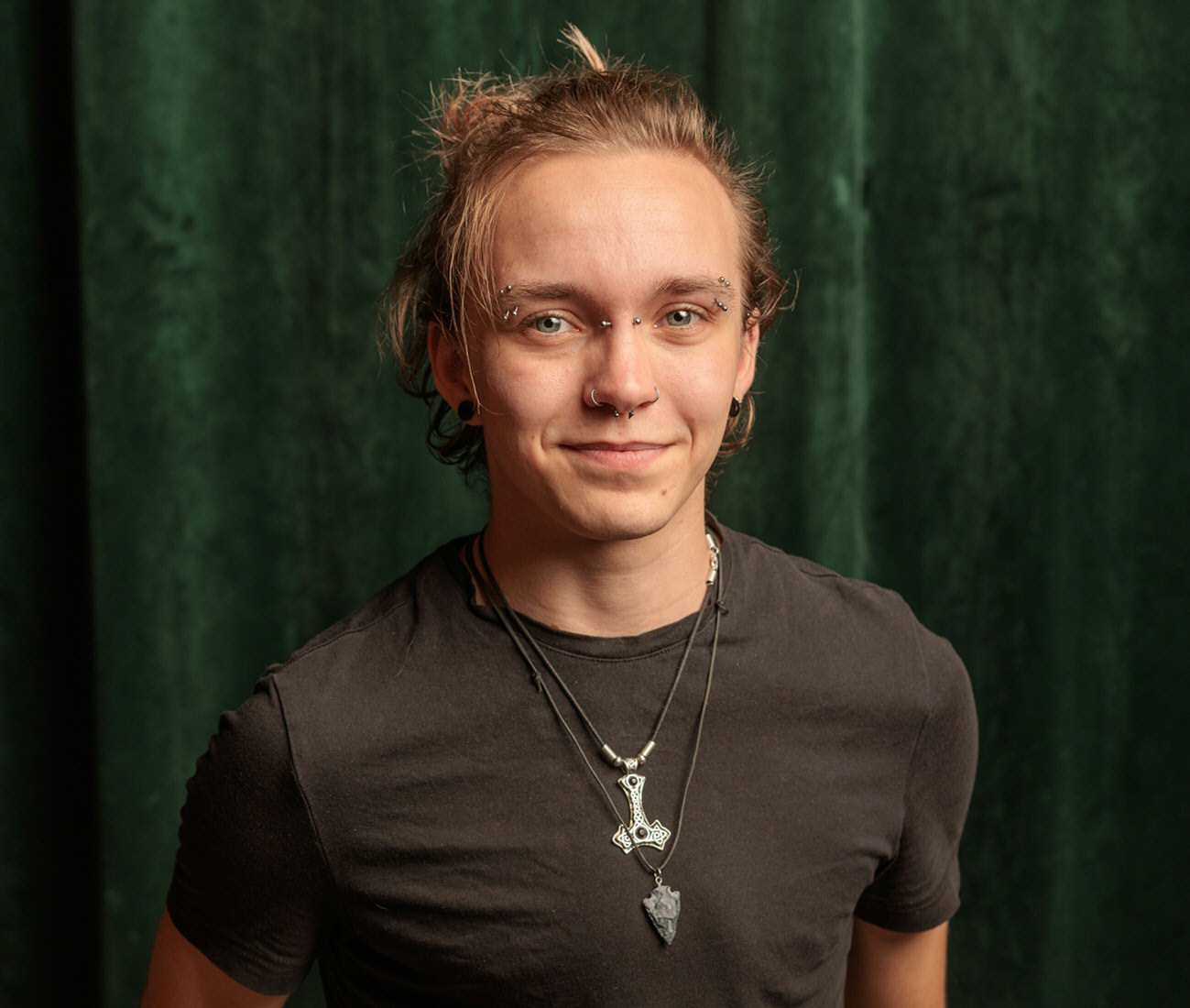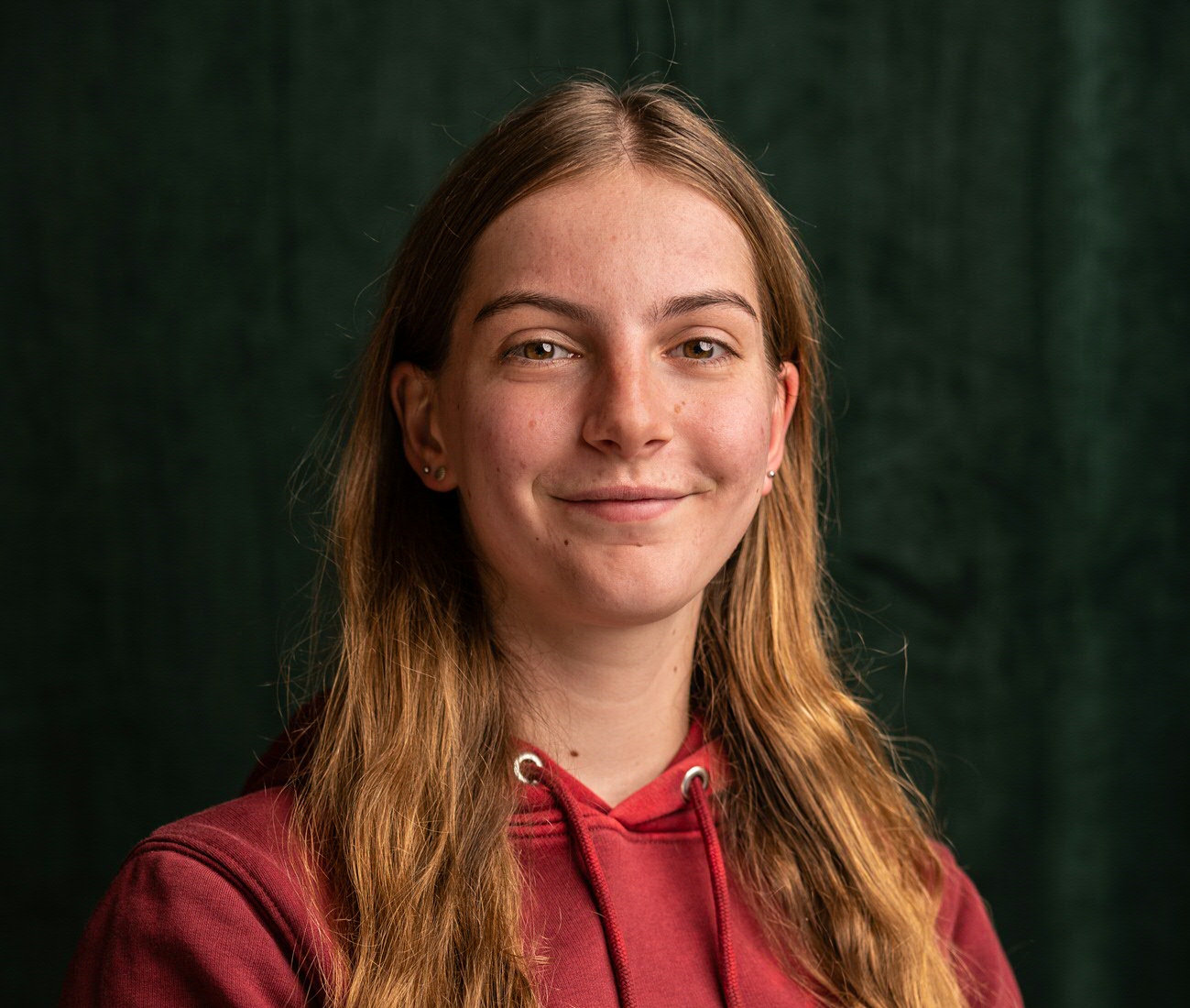
Je bent welkom bij de beste opleiding archeologie van Nederland! Ons veelzijdige programma (alle profielen geven toegang) maakt jou een toparcheoloog!
De bacheloropleiding archeologie in Groningen biedt verschillende aandachtsgebieden: de bestudering van culturen uit de oude steentijd tot de middeleeuwen, ten zuiden en ten noorden van de Alpen, letterlijk tot in het Arctisch gebied.
Het eerste jaar volg je inleidende vakken op het gebied van de Mediterrane (Klassieke) Archeologie, de archeologie van Nederland en van het Arctisch gebied. Je sluit je eerste jaar af met een maand veldwerk. In het tweede jaar kies je uit verschillende verdiepende modules binnen de Klassieke en Mediterrane archeologie of de archeologie van Noordwest Europa en je krijgt practica op het gebied van de bioarcheologie (zaden/pollen/dierlijk en menselijk botmateriaal). Je neemt deel aan een opgraving, in binnen- of buitenland en je maakt een buitenlandse excursie. In het derde jaar ga je vakken volgen bij andere opleidingen van de RUG of bij andere universiteit in binnen- of buitenland. De bacheloropleiding sluit je af met een scriptie.
Na het behalen van je bachelordiploma kun je doorstromen naar de
eenjarige master Archeologie.
Voor studenten die goed presteren en die graag onderzoek doen, is
er in Groningen de tweejarige onderzoeksmaster Archaeology.
Het eerste jaar krijg je onderwijs in de volgende gebieden:
| Semesters | ||||
|---|---|---|---|---|
| VakkenVakkencatalogus > | 1a | 1b | 2a | 2b |
| Arctische Archeologie (5 EC) | ||||
| Griekse Archeologie in de 21e eeuw (5 EC) | ||||
| Prehistorie van Nederland (5 EC) | ||||
| Archeologie van de Romeinse Wereld (5 EC) | ||||
| Conservatie en Archeometrie (5 EC) | ||||
| Historische Archeologie (5 EC) | ||||
| Bioarcheologie (5 EC) | ||||
| Geschiedenis en theorie van de Archeologie I (5 EC) | ||||
| Materiaalkennis (5 EC) | ||||
| Archeologisch veldwerk I (10 EC) | ||||
| Geoarcheologie (5 EC) | ||||
In het tweede jaar krijg je een aantal keuzemogelijkheden: je volgt de vakken die voor jou het meest interessant zijn in het eerste semester. In het tweede semester volg je de modules van de Biologische archeologie (zoölogie, botanie en osteoarcheologie). Verder neem je deel aan een grote onderzoeksopgraving en neem je deel aan een buitenlandexcursie.
| Semesters | ||||
|---|---|---|---|---|
| VakkenVakkencatalogus > | 1a | 1b | 2a | 2b |
| Cultural Anthropology (5 EC) | ||||
| Archaeology: Italy and the Roman Empire (Keuzegroep A, 2 vakken kiezen uit deze groep) (10 EC, keuzevak) | ||||
| From Agamemnon to Alexander (Keuzegroep A, 2 vakken kiezen uit deze groep) (10 EC, keuzevak) | ||||
| Handelaren en Koningen (Keuzegroep A, 2 vakken kiezen uit deze groep) (10 EC, keuzevak) | ||||
| Jager-Verzamelaars & Vroege Boeren (Keuzegroep A, 2 vakken kiezen uit deze groep) (10 EC, keuzevak) | ||||
| Archeologische Gegevensanalyse (5 EC) | ||||
| Archeobotanie (5 EC) | ||||
| Human Osteoarchaeology (5 EC) | ||||
| Zooarchaeology (5 EC) | ||||
| Archeologisch veldwerk en excursie II: KMA (Keuzegroep B, één van de twee varianten kiezen) (10 EC, keuzevak) | ||||
| Archeologisch veldwerk en excursie II: P en P (Keuzegroep B, één van de twee varianten kiezen) (10 EC, keuzevak) | ||||
| Integrated Bioarchaeology (5 EC) | ||||
Het eerste semester van het derde jaar is bedoeld om een minor te kiezen buiten de archeologie of om naar het buitenland te gaan. In het tweede semester krijg je verdiepende colleges in materiaalstudie en theorie en zijn er keuzevakken op het gebied van monumentenzorg/beleid, ruimtelijke analyses, handel en contacten in de Mediterrane Wereld en thema's binnen de Bioarcheologie en schrijf je je bachelorscriptie.
| Semesters | ||||
|---|---|---|---|---|
| VakkenVakkencatalogus > | 1a | 1b | 2a | 2b |
| Minor (semester 1) (30 EC) | ||||
| Mens en Materiële Cultuur (5 EC) | ||||
| Ruimtelijke Analyse (Keuzegroep C, één vak kiezen) (5 EC, keuzevak) | ||||
| Themes in Bioarchaeology (Keuzegroep C, één vak kiezen) (5 EC, keuzevak) | ||||
| Theorie en Praktijk (5 EC) | ||||
| Ba-scriptie Archeologie met onderzoekswerkgroep (10 EC) | ||||
| Archeologie tussen Monumentenzorg en Politiek (keuzegroep D, één vak kiezen) (5 EC, keuzevak) | ||||
| Mediterranean Connections (keuzegroep D, één vak kiezen) (5 EC, keuzevak) | ||||
Let op: hierboven staat het programma van het huidige collegejaar (2025-2026). Per 2026-2027 wijzigt het vakkenaanbod van deze opleiding. In het najaar van 2025 wordt hierover meer bekend.
| Programma-opties |
|---|
| Minoren (minor) Het vijfde semester besteed je aan je minor: een pakket samenhangende vakken dat toekomstgericht is. Het bereidt je voor op een vervolg in een mastertrack of op de arbeidsmarkt. Kies uit een careerminor, buitenlandminor, universitaire minor of facultaire minor. |
| University of Groningen Honours College (honoursprogramma) Het Honours College biedt talentvolle en gemotiveerde studenten de kans meer uit zichzelf te halen. Dat doe je door het volgen van een extra (honours)programma van 30 studiepunten naast je reguliere bacheloropleiding van 180 studiepunten, en door tal van andere activiteiten die je samen met honoursstudenten van andere opleidingen onderneemt en organiseert. Ontwikkeling van talent en eigen initiatief zijn de uitgangspunten van het honoursprogramma van de RUG. |
In het eerste semester van jaar 3 kun je kiezen voor een studieverblijf aan een buitenlandse universiteit. Wij hebben samenwerkingsverbanden met o.a. Leicester (UK), Aarhus (Denemarken), Gent (België), Venetië en Rome (Italië). Meld je tijdig aan bij de coördinator Lidewijde de Jong (lidewijde.de.jong rug.nl).
Met het VWO examen Engels voldoe je aan de taaleis.
Met het VWO examen Engels voldoe je aan de taaleis.
Met het VWO examen Engels voldoe je aan de taaleis.
Met het VWO examen Engels voldoe je aan de taaleis.
Taaleis Engels: een VWO diploma, deelcertificaat voor VWO Engels (cijfer 6 of hoger), minimum TOEFL eis iBT 90 (met een minimum van 21 voor alle onderdelen), of IELTS 6.5 (met een minimum van 6 voor alle onderdelen) of Cambridge C1 Advanced of C2 Proficiency met een minimum score van 180. Klik op de link voor meer informatie: https://www.rug.nl/let/studeren-bij-ons/bachelor/aanmelding-en-inschrijving/language-requirements-ba
De opleiding verzorgt matching. Deelname is optioneel. Het advies is niet bindend.
De Faculteit der Letteren gaat er van uit dat jij, via een bezoek aan de Open dagen, deelname aan een Eén Dag student en/of aan een Webklas, jezelf goed hebt voorbereid op de opleiding van jouw keuze. Op basis van deze voorlichtingsactiviteiten bepaal jijzelf of je goed matcht met de opleiding.
Vragen over matching bij de Faculteit der Letteren? Hier kun je verdere informatie vinden: www.rug.nl/matching
| Type student | Deadline | Start opleiding |
|---|---|---|
| Nederlandse studenten | 01 mei 2026 | 01 september 2026 |
| EU/EEA studenten | 01 mei 2026 | 01 september 2026 |
| non-EU/EEA studenten | 01 mei 2026 | 01 september 2026 |
The Faculty of Arts believes students can decide for themselves whether they match with their chosen program based on the available bachelor program information, by visiting the Open Days, and by participating in a Webclass and/ or Student for a Day. If you are unable to attend one of these activities, a final opportunity for matching is to contact one of the students of the program in June.
If you have any further questions about matching, check out: www.rug.nl/matching
| Specifieke eisen | Extra informatie |
|---|---|
| vooropleiding |
Requirements for International diploma holders: see Admissions Guide. It contains the criteria for all International VWO equivalents: https://www.rug.nl/education/application-enrolment-tuition-fees/admission/procedures/application-informatie/with-non-dutch-diploma/entry-requirements/bachelor-entry-requirements/vwo-equivalent-qualifications. |
| taaltoets cijfer |
International students will have to satisfy an additional Dutch language requirement, which can be met by passing the State Examination in Dutch as a Second Language (NT2, programme II). This examination guarantees Dutch proficiency at CEFR level B2. However, Dutch proficiency at CEFR level C1 or higher is recommended. |
| Type student | Deadline | Start opleiding |
|---|---|---|
| Nederlandse studenten | 01 mei 2026 | 01 september 2026 |
| EU/EEA studenten | 01 mei 2026 | 01 september 2026 |
| non-EU/EEA studenten | 01 mei 2026 | 01 september 2026 |
Als je je universitaire opleiding voort wilt zetten door een master te volgen, zoals de meeste studenten doen, zijn er allerlei verschillende vervolgopleidingen waar je uit kunt kiezen. Master opleidingen die direct aansluiten op de BA Archeologie zijn:
De werkgelegenheid voor afgestudeerde archeologen is op dit moment goed. Dat komt doordat archeologisch onderzoek moet plaatsvinden voordat ergens gebouwd mag worden. Dat is in de wet vastgelegd. Veel afgestudeerden vinden een baan bij de archeologische bedrijven die dit onderzoek uitvoeren. Daarnaast kun je als archeoloog terecht bij de overheid of een museum. Een baan in het onderwijs of als onderzoeker aan de universiteit is ook mogelijk.

Bij archeologie zijn onderwijs en onderzoek zeer nauw met elkaar verbonden. Al meteen vanaf de start van je studie ben je zelf ook bezig met het doen van onderzoek.
Het archeologisch onderzoek is ondergebracht in het gerenommeerde onderzoeksinstituut Groninger Institute of Archaeology en richt zich op:
Het instituut beschikt over eigen moderne laboratoriumfaciliteiten en een eigen 'bottenzolder'.

Hoi! Ik ben Isaac, ik ben tweedejaars student archeologie aan de RUG en ik woon op kamers in de stad. Ik heb het erg naar mijn zin op de opleiding en ben ook lid van de studievereniging Bachur. Ik vind lezen en sporten erg leuk, ik ben lid van Tjas (de schaatsvereniging) en van de GSAC (de klimvereniging). Ik ben zelf altijd druk bezig met van alles, ik werk op festivals door heel Nederland dus ik kom ook nog eens ergens.
Ik wilde in eerste instantie archeologie doen omdat ik geschiedenis op de middelbare school erg leuk vond. Nu ik bezig ben vind ik het een heerlijke combinatie van onderzoek doen, puzzelen en lekker buiten aan de slag zijn. Ik vind vooral de prehistorie erg interessant en ga me daar ook in specialiseren vanaf dit jaar. Ik heb hiervoor een jaar de HBO-opleiding archeologie aan Saxion gevolgd en hoewel ik dat ook echt heel leuk vond, voel ik mij op mijn plek bij de bachelor archeologie aan de RUG.
Lees meer over Isaac en waarom hij koos voor een studie Archeologie in Groningen!
Zit je op het vwo en wil je graag weten hoe dat is,
studeren? De opleiding Archeologie biedt een webklas aan!
Een webklas is een door de RUG gemaakte cursus in Brightspace
(een elektronische leeromgeving) voor scholieren uit 5 en 6 vwo. Je
kunt in zo'n cursus in tien studielasturen kennismaken met
Archeologie door teksten te lezen, opdrachten te maken en met
elkaar en de docent te discussiëren.
Interesse? Meld je dan aan voor de webklas.
Ben je benieuwd naar de opleiding Archeologie en wil je graag een beter beeld krijgen van het veldwerk dat bachelorstudenten uitvoeren? In deze video volg je studenten die een opgraving doen rondom het klooster in Ter Apel .
De opleiding Archeologie beschikt ook over een bottenzolder. Hier is de bottencollectie van de archeologen van de RUG te vinden. Aan de hand van deze botten leren zij meer over hoe mens en dier vroeger samenleefden. In deze video geeft de collectiebeheerder een rondleiding van de bottenzolder .